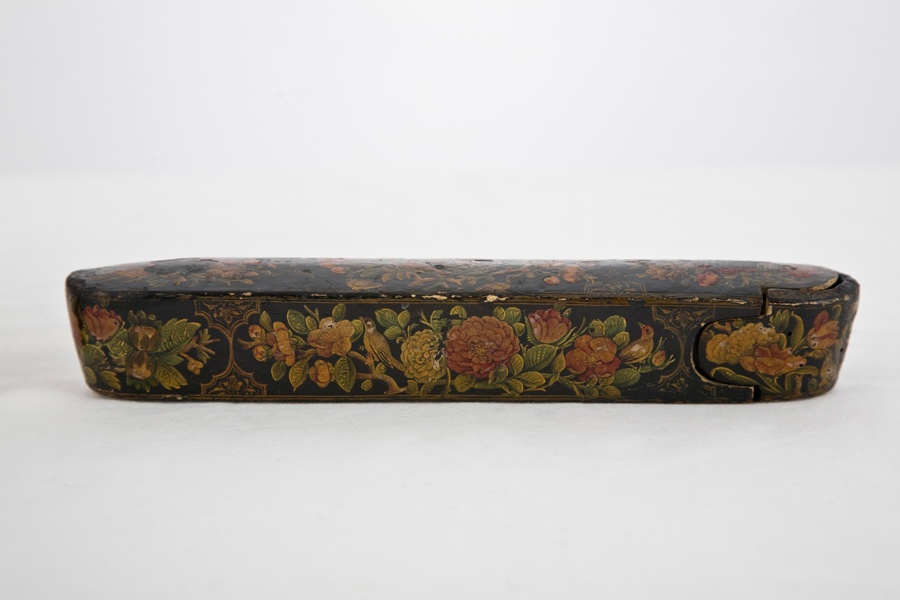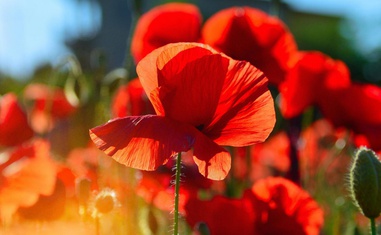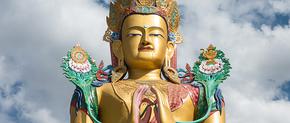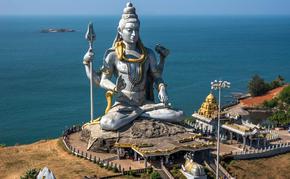The views expressed in our content reflect individual perspectives and do not represent the official views of the Baha'i Faith.
Every new Faith traces its beginnings back to the moment when its prophet and founder first recognized, revealed, and began to proclaim its holy mission.
Christians trace their Faith’s origins to the period when Jesus Christ, after his baptism by John the Baptist, returned from his sojourn in the wilderness to begin preaching the new gospel.
Jewish people recognize the return of Moses from Mount Sinai as the time when he brought the Ten Commandments to his followers.
In Islam, Muslims mark the beginnings of their Faith from the year 610 C.E., in a cave named Hira on Mount Jabal al-Nour near Mecca in what is now Saudi Arabia, where Muhammad received his first revelation.
RELATED: Celebrating the Tragedy and Triumph of the 12th Day of Ridvan
For Baha’is, the 12-day period called Ridvan, which means “paradise,” commemorates Baha’u’llah’s initial announcement of his new revelation. Baha’u’llahhttps://bahaiteachings.org/bahaullah/ wrote:
Arise, and proclaim unto the entire creation the tidings that He Who is the All-Merciful hath directed His steps towards the Ridvan and entered it. Guide, then, the people unto the garden of delight which God hath made the Throne of His Paradise.
This special period of time, celebrated by Baha’is in every part of the world during late April and early May each year, signifies more than simply the beginnings of their Faith — to Baha’is, it means that a new spiritual springtime has arrived for the entire world, as Baha’u’llah announced:
O friends! It behoveth you to refresh and revive your souls through the gracious favours which in this Divine, this soul-stirring Springtime are being showered upon you. The Day-Star of His great glory hath shed its radiance upon you, and the clouds of His limitless grace have overshadowed you. How high the reward of him that hath not deprived himself of so great a bounty, nor failed to recognize the beauty of his Best-Beloved in this, His new attire.
When the 12th and final day of the original Ridvan period in 1863 arrived, Baha’u’llah departed from that garden island outside of Baghdad and began his four-month journey to Constantinople, now known as Istanbul.
Exiled by government decree because his new, progressive teachings had continued their rapid spread among the people of the Ottoman Empire, Baha’u’llah and his family faced a perilous, grueling trip on foot and horseback through the hottest months of the year. Precisely at noon on the 12th day of Ridvan Baha’u’llah mounted his horse, a noble red roan stallion, and set out on the road to face an unknown fate.
At the place of departure, he was immediately surrounded by hordes of people begging for his blessings and imploring him not to go. The historian Nabil, an eyewitness to Baha’u’llah’s departure that day, described a wrenching scene: “Numerous were the heads which, on every side, bowed to the dust at the feet of [Baha’u’llah’s] horse, and kissed its hoofs, and countless were those who pressed forward to embrace His stirrups.”
Although Baha’u’llah had asked his many followers to stay in Baghdad and not try to trail along behind the exiled group, one of the Baha’is, named Mirza Asadu’llah Kashani, couldn’t help himself. Quoted in Lady Blomfield’s book The Chosen Highway, he reported that:
Although Baha’u’llah had commanded the friends not to follow them, I was so loath to let Him go out of my sight, that I ran after them for three hours.
He saw me, and getting down from His horse, waited for me, telling me with His beautiful voice, full of love and kindness, to go back to Baghdad, and with the friends, to set about our work, not slothfully, but with energy:
“Be not overcome with sorrow — I am leaving friends I love in Baghdad. I will surely send to them tidings of our welfare. Be steadfast in your service to God, who doeth whatsoever He willeth. Live in such peace as will be permitted to you.”
We watched them disappear into the darkness with sinking hearts, for their enemies were powerful and cruel! And we knew not where they were being taken. An unknown destination!
Weeping bitterly, we turned our faces toward Baghdad, determined to live according to His command.
Baha’u’llah’s daughter Bahiyyih Khanum later said, in an interview with Myron H. Phelps recorded in his book Abbas Effendi, His Life and Teachings, that an entire retinue of government soldiers escorted the exiles on their journey:
Many of [Baha’u’llah’s] followers decided to abandon Baghdad also, and accompany him in his wanderings. When the caravan started, our company numbered about seventy-five persons. All the young men, and others who could ride, were mounted on horses. The women and [Baha’u’llah] were furnished wagons. We were accompanied by a military escort.

RELATED: How the World’s Newest Religion Began
On the 12th day of Ridvan, Baha’u’llah began his second exile. His first, ten years before, had taken him and his family from Tehran in Persia to Baghdad in Iraq. Two more banishments would come after this one, the final exile to the pestilential prison-city of Akka in Palestine, where few survived the terrible prison conditions.
But these cruel banishments, decreed by rulers who feared the rapid spread of Baha’u’llah’s teachings, failed in their intent to suppress, damage, and destroy the Baha’i Faith — instead, they rendered it victorious, helping to spread its healing spiritual message around the world.
That’s one reason why, during the Ridvan period each year, Baha’is around the world elect the democratic institutions that administer and guide their Faith. Because the Baha’i Faith has no clergy, Baha’i communities govern themselves with democratically-elected bodies of nine people called Spiritual Assemblies, annually elected at the local and national level during the twelve days of Ridvan. At five-year intervals, Baha’is elect their global governing body, the Universal House of Justice, during this same period.
So every year during the twelve days of Ridvan, when Baha’is gather to pray and silently cast their ballots for these unique democratic institutions, they affirm Baha’u’llah’s teachings of world unity, symbolically honoring the garden of humanity in all its diversity and beauty while celebrating Baha’u’llah’s powerful declaration in the garden of Ridvan. If you know any Baha’is where you live, please join in!

















Comments
Sign in or create an account
Continue with Facebookor